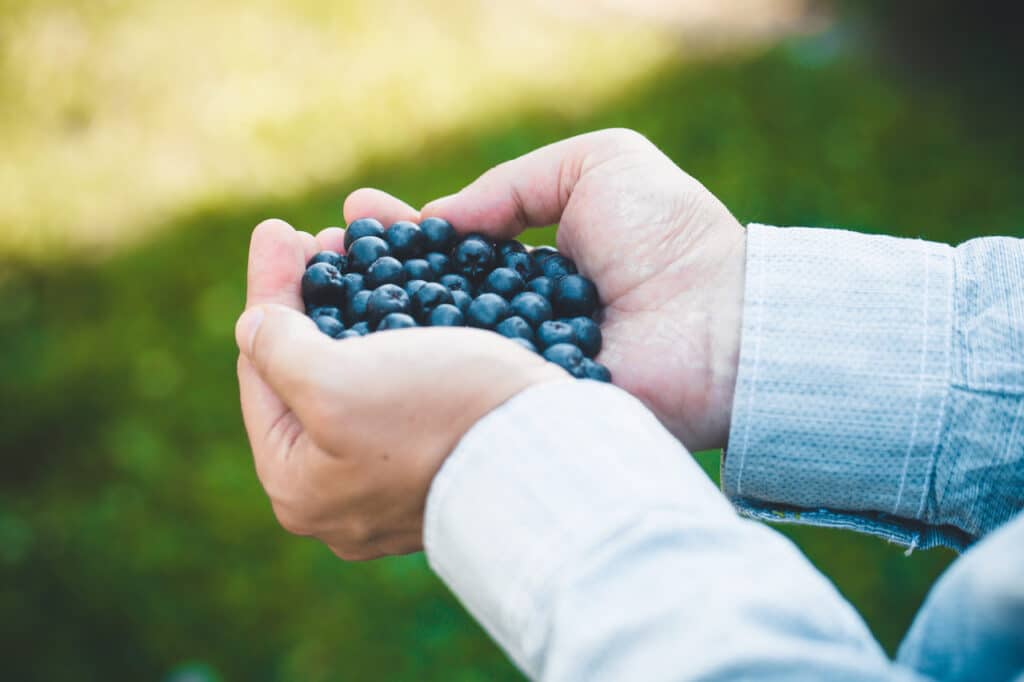Because of the health risks involved with kidney disease, it’s important to follow a diet that is easy on your kidneys and will help them function to their maximum capacity. So while you want to limit your consumption of sodium, potassium, and phosphorus, here are some other ideas of foods that you want to implement more into your diet.
Cauliflower
Incorporating cauliflower in your diet if you have kidney issues is a great idea as it is well-rounded in its nutritional value and, more importantly, meets dietary restrictions required to manage kidney disease.
Cauliflower is a welcome addition to any renal diet, as it is rich in fiber and anti-inflammatory compounds such as indoles, while being incredibly low in potassium, sodium, and phosphorus, which are nutrients you want to minimize.
Blueberries
These make for a delicious, nutritious snack on a kidney-friendly meal plan. Blueberries are especially loaded with antioxidants that help protect your body from heart disease and some types of cancers.
Versatile, and very easy to include in salads, smoothies, cereal, or to eat simply on-the-go, they are also low in sodium, potassium, and phosphorus, rightly earning them a spot in our list of top foods in your renal diet.
Red Grapes
These are another highly recommended fruit that is beneficial for troubled kidneys. They are rich in Vitamin C, and contain flavonoids, which are antioxidants that have been proven to fight inflammation in the body.
Red grapes are also rich in resveratrol, a type of flavonoid that is good for heart health and fights cognitive decline. It’s best to eat the whole fruit to get the nutrients present in the skin, so you can find many different recipes for incorporating it into your diet, including freezing them for a summer afternoon snack.
Garlic
Garlic is a fantastic flavor enhancer, and is a healthy alternative to regular salt. It also has anti-inflammatory properties as well as Vitamin C, manganese, and Vitamin B6. Not only will it aide your kidneys, but adding it to a savory meal makes your kitchen smell amazing, and it also adds depth to the dish flavor.
Olive Oil
Olive oil is completely phosphorus-free, and one tablespoon (13.5 grams) will get you only 0.3 mg of sodium and 0.1 mg of potassium. Olive oil provides the right amount of calories and contains healthy fat, which is especially beneficial to patients who have lost a lot of weight due to advanced kidney problems, and need help keeping it on.
Cabbage
Cabbage is an excellent source of minerals and vitamins such as Vitamin K, Vitamin C and Vitamin B. It is a fantastic digestion booster as it contains roughage that aids bowel movement. It is low in sodium, potassium, and can be cooked in a variety of ways, whether fresh, steamed, or pickled, although each method alters the level of nutrients, so you will want to check which is best for your diet.
Onions
Just like garlic, onions are an excellent addition to your renal diet. It is loaded with Vitamins B and C as well as manganese and prebiotic fiber, a type of fiber that aids the growth of helpful bacteria that live in your gut. One 70-gram onion provides you with 3 mg of sodium, 102 mg, and 20 mg of phosphorus, quantities that meet recommended dietary restrictions for kidney patients.
Arugula
This vegetable is an excellent alternative to other green leafy veggies such as kale and spinach. It contains nitrates, which have been shown to lower blood pressure, which easily rises in kidney patients. One (20 grams) cup of raw arugula is made up of 6 mg of sodium, 74 mg of potassium, and 10 mg of phosphorus.
Pineapple
Pineapples are rich in Vitamin C and manganese. They also contain fiber, which aids digestion and bromelain, which fights inflammation. Also, they are a tasty, nutritious fruit that can be juiced or sliced up and eaten on their own or incorporated into a fruit or vegetable salad. One cup (165 grams) contains 2 mg of sodium, 180 mg of potassium, and 13 mg of potassium.
Bell Peppers
Last but not least are bell peppers. These are nutrient-packed, but low in potassium. Bell peppers are extremely loaded with Vitamin C, an antioxidant that fights cancer-causing free radicals and Vitamin A, which boosts the immune system. A red bell pepper of 74 grams contains 156 mg of potassium, 3 mg of sodium, and 19 mg of phosphorus.
Improving Kidney Health Through a Renal Diet and Nutrition Counseling
Use these foods to help naturally improve your kidney health. If you’re suffering from kidney disease in any stage, you should also talk with your healthcare professional about nutrition counseling to understand how to adjust your diet to get the nutrients your body needs, and how to cook your food to optimize the nutrient content.
At Texas Kidney Institute, our doctors and nutritionists specialize in kidney health and the very best patient care. Call us today at (214) 234-2459 or fill out a form here to schedule an appointment with a nutritionist.

